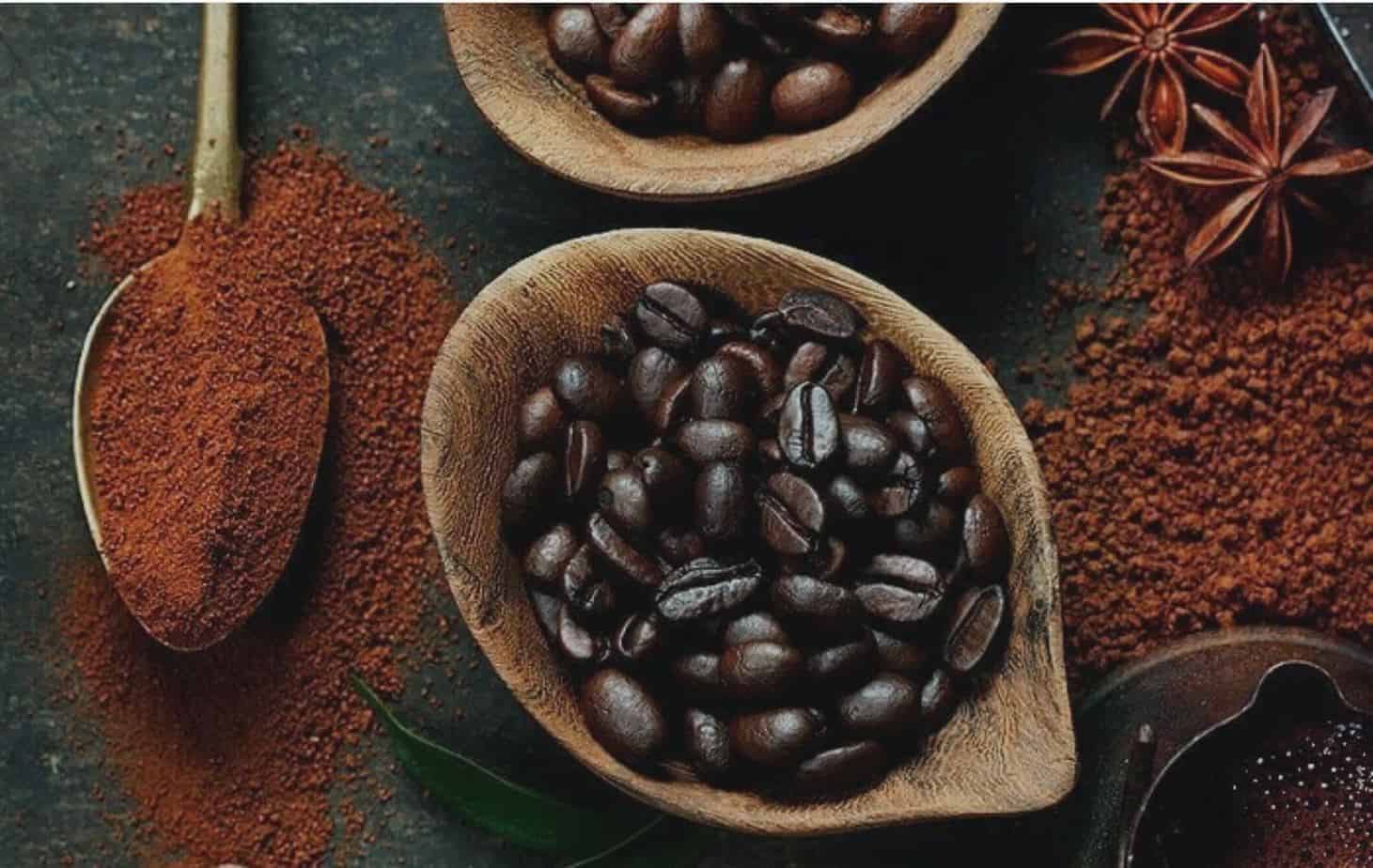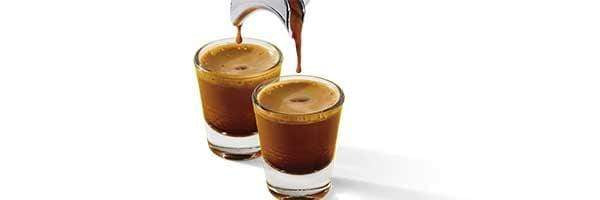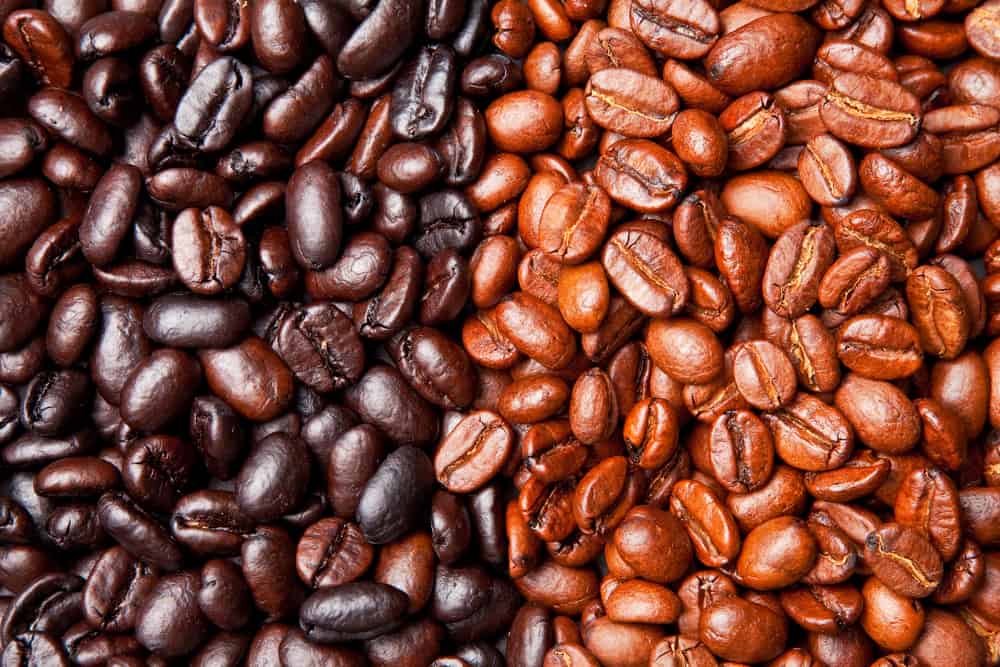What is the Secret to Brewing the Perfect Cup of Coffee?
People always ask us why our coffee tastes so good. Be it at the end of a delicious meal that we just prepared for you, or that perfect cup of coffee to accompany that fabulous brunch.
- How to Make a Perfect Cup of Coffee:
- Here are a few tips for making a perfect cup of coffee:
- The Science of Coffee Extraction
- What is the perfect ratio of coffee to water?
- The Joys of Dark Roast Coffees
- But I like big and bold coffee flavors!
- But I need more caffeine in my cup!
- Popular Coffee Brewing Methods:
How to Make a Perfect Cup of Coffee:
We all have one of "those friends" who is the self-professed "coffee snob", (aka "expert") and they preach to the heavens that the spoon needs to stand up by itself in the cup because the coffee has to be "intensely strong to be the perfect cup of coffee." But does it really?
Some coffee snobs swear that the perfect cup of coffee is so strong that a spoon will stand up in it. However, this is not true. A spoon standing up in coffee simply means that the coffee is too concentrated and will taste bitter. A strong cup of coffee will have a rich, full flavor without being bitter. It will also have a smooth texture, not a thick, syrupy consistency. The best way to make a delicious cup of coffee is to experiment until you find the perfect balance of strength and flavor. There is no right or wrong answer, so find what you like and enjoy!
Here are a few tips for making a perfect cup of coffee:
- Use fresh, high-quality coffee beans.
- Grind the beans just before brewing.
- Use filtered water.
- Clean your coffee maker regularly.
- Experiment with different brewing methods.

Or perhaps it's you who have the undying need for a "strong cup of coffee" in the morning to get the hitch out of your giddy-up and get your day started. So you trot off to your favorite Bodum French Press, Chemex Pour Over or the trust dusty drip coffee maker, or fancy schmancy espresso machine, and start piling in a truckload of extra beans or grounds. But why? Is it because you think it will get you a better-tasting cup of coffee? or perhaps a bigger jolt of a caffeine boost?
The truth is more coffee, doesn't mean a better, stronger, or more caffeinated or a perfect cup of coffee.
*mic drop*
The Science of Coffee Extraction
Coffee is made by pouring hot water over ground coffee beans. The hot water dissolves the oils, compounds, and aromas in the ground beans, creating a delicious and invigorating beverage.
The chemical interactions that take place when water meets coffee are complex and fascinating. The water extracts the flavor compounds from the coffee beans in a process called extraction. The amount of extraction is determined by a number of factors, including the grind size, the brewing time, and the temperature of the water.
Over-extraction
If the water extracts too much of the flavor compounds from the coffee beans, the coffee will taste bitter. This is because the bitter compounds are extracted more easily than the other flavor compounds. Over-extraction can be prevented by using a coarser grind, brewing for a shorter time, or using cooler water.
Under-extraction
If the water does not extract enough of the flavor compounds from the coffee beans, the coffee will taste sour. This is because the sour compounds are extracted less easily than the other flavor compounds. Under-extraction can be prevented by using a finer grind, brewing for a longer time, or using hotter water.
The Secret to the Perfect Cup of Coffee
The perfect cup of coffee is one that is extracted just right. The coffee should be flavorful without being bitter or sour. The best way to find the perfect extraction for your taste is to experiment with different grind sizes, brewing times, and water temperatures.
If over-extraction and under-extraction lead to nasty coffee, what's right in the middle?

What is the perfect ratio of coffee to water?
A good starting point is a ratio of 1:15 or 1:16. This means that for every 1 gram of coffee grounds, you should use 15 or 16 grams of water.
If you like your coffee stronger, you can increase the ratio to 1:12 or 1:13. If you prefer a weaker cup of coffee, you can decrease the ratio to 1:18 or 1:20.
It's important to experiment until you find the ratio that you like best.
Here are some other factors that can affect the taste of your coffee:
- Grind size: The grind size should be coarser for a French press and finer for a pour-over.
- Water temperature: The ideal temperature is between 195 and 205 degrees Fahrenheit.
- Brewing time: The brewing time should be between 3 and 5 minutes.
- Cleanliness: Make sure to clean your coffee maker regularly to prevent a build-up of coffee oils and residue.

The Joys of Dark Roast Coffees
Coffee lovers come in all shapes and sizes, with a wide range of preferences when it comes to their morning brew. Some prefer a light roast, with bright, fruity notes. Others prefer a medium roast, with a balanced flavor. And then there are those who love a dark roast, with bold, rich flavors.
But I like big and bold coffee flavors!
If you're a fan of dark roast coffee, you know that it's not just about the caffeine. It's about the deep, rich flavor that comes from roasting the beans for a longer period of time. Dark roast coffee often has notes of chocolate, caramel, and even leather. It's the perfect way to start your day or enjoy a relaxing afternoon break.
Of course, not all dark roast coffee is created equal. It's important to buy high-quality beans from a reputable roaster. You should also grind the beans right before brewing, to ensure that you get the freshest flavor possible.
If you're looking for a delicious dark roast coffee to try, I highly recommend Weaver's Peruvian Coffee. This coffee is roasted in San Rafael, California. It has a rich, balanced flavor with notes of chocolate, caramel, toffee-like finish with toasted nuts. I think you'll really enjoy it!
Tips for brewing the perfect cup of dark roast coffee:
- Use a coarser grind than you would for a light or medium roast.
- Brew for a longer period of time, about 4-5 minutes.
- Use hot water, between 195 and 205 degrees Fahrenheit.
So next time you're looking for a cup of coffee that's bold, rich, and flavorful, reach for a dark roast. You won't be disappointed!
But I need more caffeine in my cup!
Never Buy Extra Caffeinated Coffee
There are a number of reasons why you should not buy extra caffeinated coffee.
- Extra caffeine is not necessary. Most coffee has enough caffeine to give you a good boost of energy. If you need more caffeine, you can always drink another cup of coffee.
- Extra caffeine can be harmful. Too much caffeine can cause anxiety, insomnia, and headaches. In rare cases, it can even be fatal.
- Extra caffeinated coffee is often more expensive. There is no reason to pay more for coffee that has more caffeine. You can get the same amount of caffeine from regular coffee for a lower price.
If you are looking for a coffee that will give you a good boost of energy, I recommend looking for a light roast coffee. Light roast coffees have more caffeine than dark roast coffees. They also have a brighter, more flavorful cup of coffee.
Now that you've got the secret, go brew yourself that perfect cup of coffee and enjoy!
Popular Coffee Brewing Methods:
- How to Make Coffee with a French Press Courtesy Weaver's Coffee & Tea
- How to Brew Chemex Coffee Pour Over Courtesy Downshiftology (YouTube)
- How to Pull Perfect Espresso Shots Courtesy Whole Latte Love (YouTube)
Check out more AWG Private Chefs blog posts with helpful tips & tricks for "Easy, Effortless Entertaining" recipes, product suggestions, and more!
- Chef's List: 10 Kitchen Must Haves for Every Home Cook
- 5 Simple Side Dishes Fancy Enough to Serve to Company
- Helpful Tips on Planning Catering for Funerals & Memorial Services
- The Secret Life of Cream Cheese: Not just for cheesecake any more!
About the Author: Chef Sean Andrade is a Certified Master Chef, Sommelier & Wine Educator, and chef-owner of AWG Private Chefs. With over 25 years of experience in the food and beverage industry, Chef Sean has traveled all over the globe to learn, taste, source ingredients, and develop recipes.
An outstanding share! I have just forwarded this onto a colleague who had been doing a little homework on this.
And he in fact ordered me dinner due to the fact that I discovered it for him...
lol. So let me reword this.... Thank YOU for the meal!!
Colombia coffee is the best in the world.